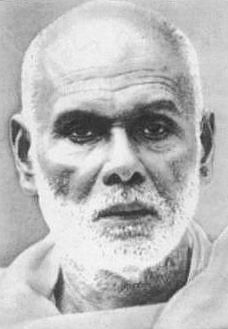These were the words of Sree Narayana Guru, it simply means, "One Caste, One Religion, One God for all mankind". I was born a hindu, and brought up so. But i also had to fortune to go to schools which which professed a different thought or none at all. My family also helped, because their was no direct imposition of strictures, other than a regular evening prayers, but we were also taught about humanity and brotherhood. My first direct exposure to the concept of one man, one god, or rather one man, many gods (both indirectly preaching the same concept or universal love), was from the singer KJ Yesudas.
I must have been 8 or 9, when life was full of black and white only. Yesudas had come to sing at our school, Bain School (a christian school run by Church of South India), as part of some fund raiser. The crowd was filled with malayalees, including our family. He singing was interrupted after about an hour or so, by some elaborate garlanding ceremony of a whole bunch of people. He soon ended the program, with thanks, but was clearly distraught. The interruption my mother believed was because he sang a few classical songs (bordering on devotional), altho' i dont particularly recall anything specific. We came out and waiting for my dad to pull his car, when we noticed that the real Gana Gandharvan was sitting in a black Ambassador near us, waiting for space to pull his car out. My mother walked up to him, tagging us along, and asked him, "why didnt you sing any Ayyappan songs", to which he pulled a rudraksha chain he was wearing around his neck, showed my mom three or four lockets, one ayyappan, one guruvayoorappan, one jesus and something else. He said, "for me all gods are one", and if we wanted to hear him sing more Ayyappan songs, we could visit his next program in chennai at a local ayyappan temple. The image of the chain extended by his palm, the lockets, and his bearded face mouthing those lines are still vivid in my memory.
This concept was further reinforced at my next school, Asan Memorial. I would later come to know that this founders and the trustees of the school were also devotees of Narayana Guru. But my school prayer was not any elaborate devotional songs, but a simple recital of a sloka by our painting master. And if he was absent, then we said the 'Father in heaven', christian prayer recited by our piano teacher, and sometimes a few small prayers by others.
I came to fully understand and know about Narayana Guru much later. I remember passing the temple dedicated to him at Vepery, in Chennai, wondering who this man was. I also thought it was some jain cult or some nondescript guru from the north of India. When i did come to know of him, i still wondered this temple had his statue. I am yet to understand that, and more on this a little later.
A Doordharshan program in the 80's, introduced me to Sree Narayana Guru. The single biggest thing that struck me most about him, was the temple he opened in Kerala, were he consecrated a mirror as the prathishta (idol), to be prayed. Already a little attuned with the philosophy of Adi Sankaracharya, i was amazed by this simple yet sublime act. In one stroke, he displayed eloquently the Advaita philosophy. I interpret this as, 'pray to the god that you see in you', or 'you are the god you seek'. Of course, understanding this and appreciating these will require a lot more learning and discipline. But this temple would help bring this concept closer to the people, instead of some abstruse philosophy.
More readings and understandings, brought forth, the revolution he started in Kerala, changing its culture and traditions forever. I always abhorred the caste system, and never felt that true hinduism ever preached it, or practiced it, they way it was done in last few centuries. Narayana Guru's action to break these barriers and to educate people about these malpractices were the other actions that endeared him to me. And before i forget, his teaching was again reiterated, by a song sung by Yesudas, 'Oru Jathi Oru Matham', in a music cassette of songs and poems written by Narayana Guru.
This mantra has always reverberated in my mind and soul. We are all one, we just seek different paths to reach our goals. There is no need to play on these differences. Every religion, seem to agree that there is only one god. But the followers take that to mean that the other gods are somehow illegitimate and/or non-existent. Instead of understanding the unanimity professed, people accentuate the anomaly. It is therefore, important to once again reiterate these teachings.
This mantra has always reverberated in my mind and soul. We are all one, we just seek different paths to reach our goals. There is no need to play on these differences. Every religion, seem to agree that there is only one god. But the followers take that to mean that the other gods are somehow illegitimate and/or non-existent. Instead of understanding the unanimity professed, people accentuate the anomaly. It is therefore, important to once again reiterate these teachings.
